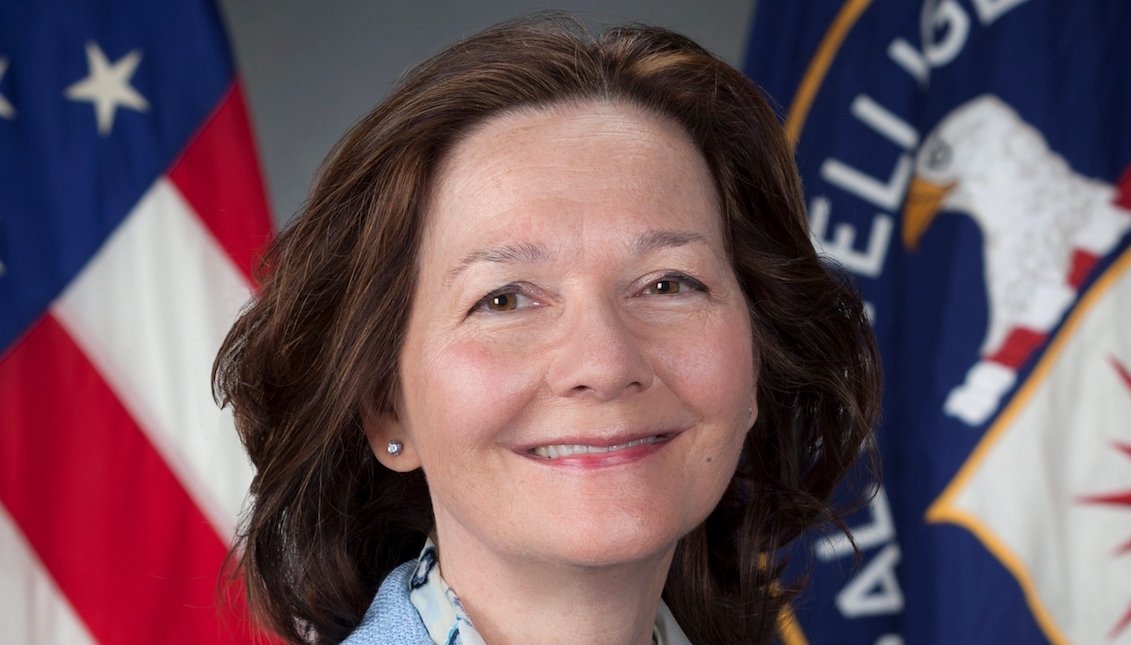
Trump's flirtation with torture comes to the CIA
After assuring that "torture works" at the beginning of his term, Donald Trump has now nominated as director of the CIA a woman with a dark past.
Although the president usually takes the country and his advisors by surprise with his impulsiveness, in most cases they are premeditated decisions and with a well-planned agenda behind.
That is why when he made public the nomination of his new candidate to the direction of the Central Intelligence Agency (CIA), the veteran agent Gina Haspel, many have been stunned.
"Gina Haspel will become the new Director of the CIA, and the first woman so chosen,” the president wrote on Twitter last Tuesday when he made public his decision to dismiss his Secretary of State, Rex Tillerson, and replace him with the then director of the CIA, Mike Pompeo.
In the midst of the hustle and bustle over the dismissal of one of the heavyweights in the Administration - and the comments of the president on his need to have a loyalist by his side - the eyes took time to settle on the new nominee to the management of one of the most important intelligence agencies in the world.
However, the New York Times soon recalled that just a year after the September 11 attacks, "the CIA dispatched the veteran undercover agent Gina Haspel to oversee a secret prison in Thailand," as a frantic search of suspected terrorists participating in the Al-Qaeda group. Under the direction of Haspel, the prison fostered "waterboards" and "brutal interrogation techniques."
In a similar way, the Washington Post reported that the detainees, known as Abd al-Rahim al-Nashiri and Abu Zubaydah, were subjected to brutal interrogation techniques, some of which were recorded causing "some intelligence agents to break into tears" while watching them, but thanks to Haspel's cooperation, "the tapes were destroyed".
In his column for the journal, Richard Cohen cites Steve Coll's famous book, "Directorate S", which recapitulates the facts of the "endless war in Afghanistan." Coll describes the interrogation program of the CIA as a "dystopia tinged with science fiction of intimidation and domination over prisoners", elaborated hand in hand with professional psychologists who built scenarios for the worst psychological terror "most shockingly bureaucratized descent into the application of the pseudoscience in human subjects by the CIA," since it dabbled in drug-induced mental control in the 1950s, adds Cohen.
Under the confidentiality statute for national security, all these procedures were unknown, but a document from the Senate Intelligence Committee in which the Agency's "detention and interrogation program" was studied - and which was published in 2014, thanks to the declassification of President Obama - made evident the mechanisms of torture, "in the hopes that it will prevent future coercive interrogation practices".
The director of the Committee, Dianne Feinstein, wrote in the report that, although the context in which counter-terrorism measures arose could be used as an excuse for torture, "this does not justify, temper or excuse improper actions taken by individuals or organizations in the name of national security".
RELATED CONTENT
Haspel's name was in the middle of the core and, as the Times continues, the then "rising star agent" saw her career curtailed by public knowledge of the techniques.
All this changed with the arrival of Donald Trump and his eternal flirtation with violence and the radicalization of American positions when it comes to National Security, now giving a second opportunity "to shine" to the agent Haspel, who must face the questions of the Senators in the Capitol to be able to be assigned in the position.
For representatives like Arizona Republican Senator John McCain - who was tortured while a prisoner of war in Vietnam - "Ms. Haspel needs to explain the nature and extent of her involvement in the CIA’s interrogation program during the confirmation process," he said in a statement. "I know the Senate will do its job by examining Ms. Haspel's record, as well as her beliefs about torture and her approach to current law."
For his part, Robert Eatinger (who was a senior attorney at the CIA Counterterrorism Center) told the New York Times "I don’t envy her trying to get through confirmation. It’s going to be the first chance for senators to have someone intimately involved in the program in front of them to answer questions. I think they’ll take full advantage of that opportunity.”
Finally, civil rights groups, such as The American Civil Liberties Union and the Center for Constitutional Rights, have requested that Haspel's entire record be made public, which they consider will make her "unfit for the position," according to TIME magazine.











LEAVE A COMMENT:
Join the discussion! Leave a comment.